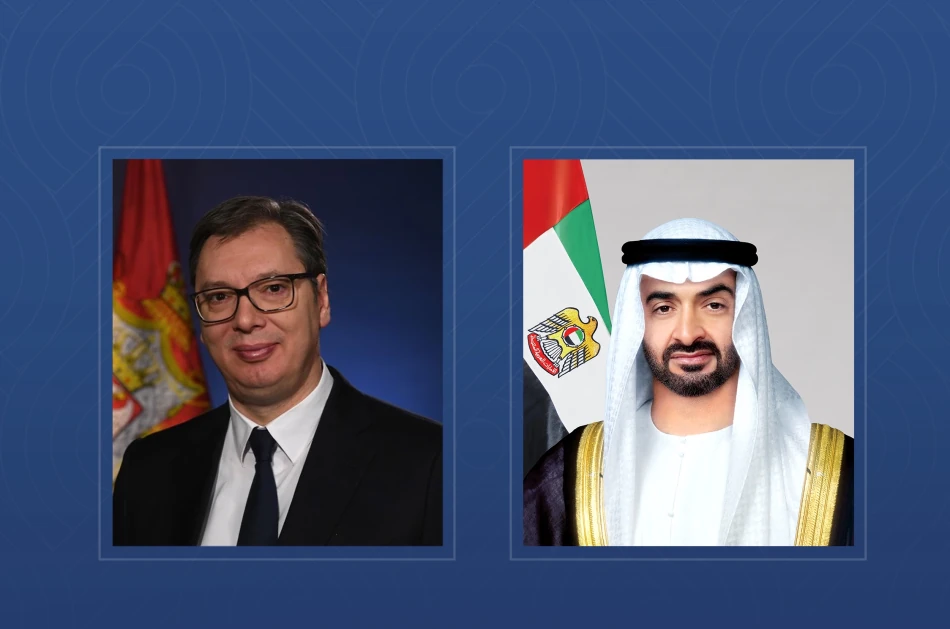
State Leader and President Alexander Vučić Witness Military Parade Celebrating Serbian Unity, Liberty, and Flag Day
UAE President Attends Serbia's Military Parade, Cementing Growing Balkan Ties
UAE President Sheikh Mohammed bin Zayed Al Nahyan attended Serbia's national military parade in Belgrade, marking a significant diplomatic moment as the Gulf nation expands its influence in the Balkans. The high-profile visit during Serbia's "Unity, Freedom, and Serbian Flag Day" celebrations underscores the UAE's strategic pivot toward non-traditional partnerships amid shifting global alliances.
A Display of Serbian Military Capabilities
The military parade at Serbia Palace showcased the country's defense capabilities with various armed forces units, heavy machinery, advanced defense systems, and river fleet vessels. Serbian President Aleksandar Vučić hosted the UAE delegation, which included Dubai Crown Prince Sheikh Hamdan bin Mohammed bin Rashid Al Maktoum, who also serves as Defense Minister.
The ceremony featured a dramatic display of a 300-meter Serbian flag and demonstrations by paratroopers, air defense units, and personal protection guards. These exhibitions highlighted Serbia's military readiness and modernization efforts, particularly relevant given the country's complex position between EU aspirations and traditional Russian ties.
Strategic Implications for Regional Partnerships
This visit represents more than ceremonial diplomacy. The UAE has been systematically building relationships across the Balkans as part of its broader strategy to diversify partnerships beyond traditional Western and regional allies. Serbia, with its unique position as a European nation maintaining ties with both Russia and China while seeking EU membership, offers the UAE a valuable entry point into European markets and politics.
Economic Opportunities Behind the Pageantry
The timing of this diplomatic engagement coincides with Serbia's infrastructure modernization drive and the UAE's appetite for international investment opportunities. Serbian defense capabilities showcased during the parade could present opportunities for UAE defense contractors and technology firms, while Serbia's strategic location offers logistics advantages for UAE businesses targeting European markets.
Broader Geopolitical Context
The UAE's presence at Serbia's national celebration comes as traditional power structures in the Balkans face pressure. With EU expansion stalled and Russia's influence waning due to sanctions, middle powers like the UAE are finding opportunities to establish meaningful partnerships with European nations seeking alternative relationships.
This diplomatic outreach mirrors similar UAE strategies in Africa and Asia, where the Emirates has successfully positioned itself as a reliable partner for nations seeking investment and technological cooperation without the political strings often attached to relationships with major powers.
Defense Cooperation Potential
The UAE's advanced defense industry, built through partnerships with international manufacturers and significant domestic investment, could complement Serbia's military modernization efforts. The Emirates has successfully developed capabilities in drone technology, cyber defense, and military logistics – areas where Serbia has expressed interest in advancing its capabilities.
Sheikh Mohammed bin Zayed's congratulations to President Vučić emphasized the "strength of UAE-Serbian relations" and mutual commitment to enhancing cooperation for both peoples' benefit, suggesting concrete agreements may follow this symbolic visit.
Looking Forward
This diplomatic engagement positions both nations to benefit from expanded cooperation. For Serbia, UAE partnership offers access to Gulf capital and advanced technologies without compromising its delicate balancing act between East and West. For the UAE, Serbia provides a foothold in Europe and potential defense market opportunities as the continent reassesses its security needs.
The success of this relationship could serve as a template for UAE engagement with other Balkan nations, potentially reshaping regional diplomatic dynamics as traditional power brokers face increasing constraints.
Most Viewed News

 Sara Khaled
Sara Khaled






